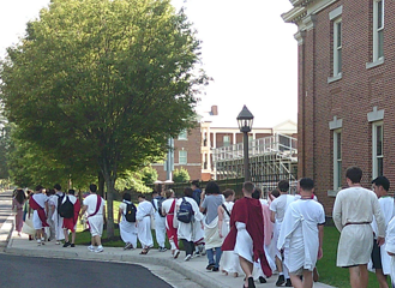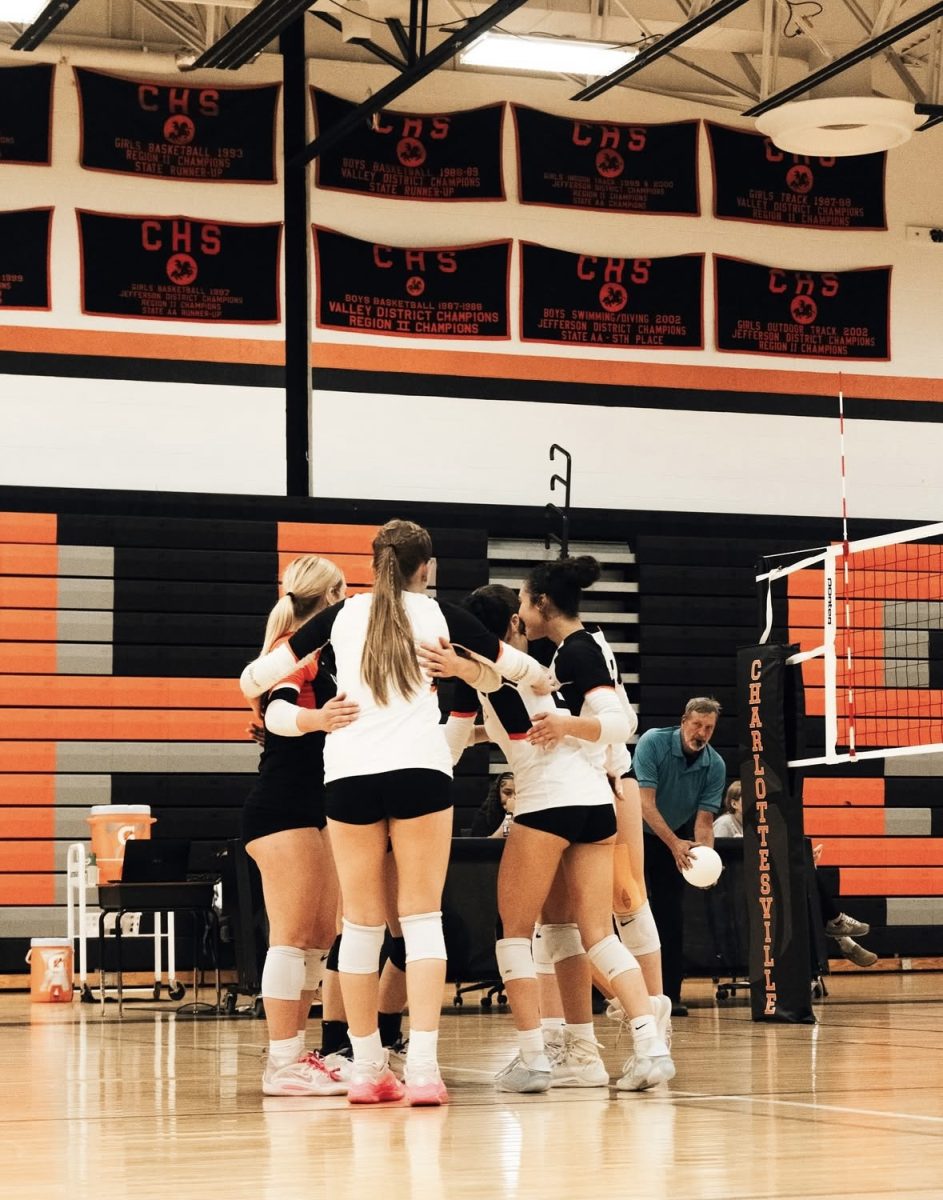C.H.S. Considers Limiting A.P.s
What Would You Do If You Could Only Take Four A Year?
December 7, 2017
Have you ever felt confused and overwhelmed by the amount of homework given to you by these A.P. classes? At the recent P.T.O. meeting on October 30, 2017, Mr. Wilkerson, head of the counseling department, and Dr. Irrizary declared a pending proposal to limit A.P. classes students at Charlottesville High School students may take per year to four.
“The goal is to insure that our students are healthy, fulfilled individuals who remain challenged throughout high school, but not overwhelmed,” said Mr. Wilkerson. Many students become overwhelmed by the demanding workload assigned by teachers, which mentally and physically breaks them down. In addition to reducing stress, this new policy would ensure equal academic opportunities for colleges. “The other effort we’re making is considering eliminating decile rankings so that kids aren’t competing with each other as much as they are competing with themselves to produce the best high school experience they can have for them individually.”
Colleges do not choose students based on the number of A.P. classes taken, but instead they choose students based on the strength of their schedule and based on their classes available. For instance, a high school student who has not taken any A.P. classes will not be judged negatively if their school didn’t offer any. If C.H.S. implemented this restriction, then taking only four A.P. classes be the hardest schedule available; to colleges, this would look the same as taking seven previously. Why? Because they are both the most difficult schedules that the school allows.
While this may sound good in theory many students are concerned with the outcome. “Stress aside, I feel that A.P. classes are the only classes that I really feel like I learn substantial information,” said a senior, who spoke on the condition of anonymity. A.P. classes, while being the most difficult and stressful, are found by many to be the most useful and interesting. Limiting these courses, then, could impact the student’s enjoyment of school as well.
Furthermore, it is possible the achievement gap as a result of the socio-economic divide could drastically increase. Instead of taking C.H.S. honors classes to fill the other three spots in their schedule, students with the ability to pay and transport themselves could enroll in UVa courses instead. This option does not come cheap. University of Virginia classes average $1,500 dollars per semester, allowing only the wealthier students the opportunity to take them. Consequently, these students would get an academic and competitive advantage over others. Moreover, students who don’t want to go to U.Va. or want to take more than one extra college-level course could pay to take an A.P. class online, through programs such as Brigham-Young University’s Independent Study or the Northwestern Center for Talent Development, two programs popular among C.H.S. students exploring this option. Some argue that this restriction would only restrict the ones who couldn’t pay their way around it.
The administration hopes to reduce the intense stress caused by A.P. classes and maintain competitiveness. In conclusion, during the P.T.O. meeting Mr. Wilkerson says that “parents seemed to self select and came to that PTO meeting believing that we need to look into ways that we need to reduce stress for kids”. The initial goal here is to reduce stress. Colleges look into each high school and do take the amount of AP classes that are offered into consideration. Therefore, students, don’t fret. It will all be okay, and it is all in our best interest.



